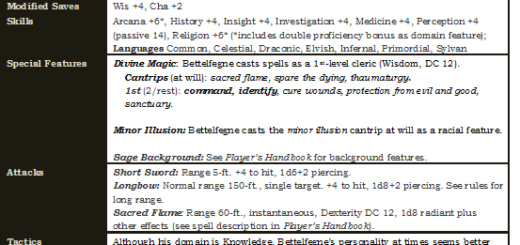Stat Block: The Peasant Soldier An ethical challenge for PCs

The Peasant War. Zwölf Artikel der Bauern Flugschrift von 1525. (Art is in the public domain.)
From time to time, we will be publishing quick stat blocks. Some will be original. Others, like this one, are tweaks of existing stat blocks. What you do with them is up to you. Note: The Peasant Soldier is designated as Open Game Content. This designation covers all of the text in this article. (Click here for license.)
Peasant Soldier
Medium Humanoid (Conscripted Commoner)
Challenge 1/8 (25 XP)
Defense & Maneuver
Armor Class 11 (gambeson — i.e., padded armor)
Hit Points 4
Speed 30 ft.
Senses passive Perception 10
Attacks
Melee Attack (+2 to hit, 4 piercing damage): The peasant soldier wields a spear two-handed (5-foot reach), attacking for 1d8 damage. Although the peasant soldier can throw the spear, he only does so in desperation.
Miscellany
Alignment (Any)
Languages Usually Common
Ability Modifiers All +0
Peasant soldiers are cheap to employ — just 6 GP to equip and 2 SP a day, each. That said, they are often reluctant, suffer from poor morale, and are untrained.
The chief challenge that conscripts pose to player characters is an ethical one: Given that even low-level adventurers are much more powerful than the typical conscript, and given that the conscript often has little choice about serving, is it acceptable to PC alignments to kill them? Many PCs may find combats with conscripts challenging not because the conscripts are deadly but because some PCs see killing them as murder.
For this reason, the best dramatic, in-game use of conscripts is as a kind of human shield for nastier bad guys. For example, when the villainous baron comes out to negotiate with the party, he brings two tough henchmen — and a dozen miserable-looking conscripted soldiers who are clearly more afraid of their employer than they are of the PCs (though that might change). Many PCs who tend to fight first and ask questions later may be more inclined to talk in such scenes, if they realize a fight might result in them having to kill simple farmers with no personal stake in the matter.
GMs should keep in mind that the peasant soldiers agree with those PCs unwilling to kill them–they don’t want to die. Assume they are more likely to surrender or play dead or fall to the ground incapacitated than more professional soldiers would be, particularly if they suspect the PCs won’t murder them outright. On the other hand, if the PCs seem perfectly willing to execute them, peasant soldiers may prefer either flight or fight. And the party doesn’t know what the villains have told the peasants–they may very well believe the PCs are worse than their employer is. †












